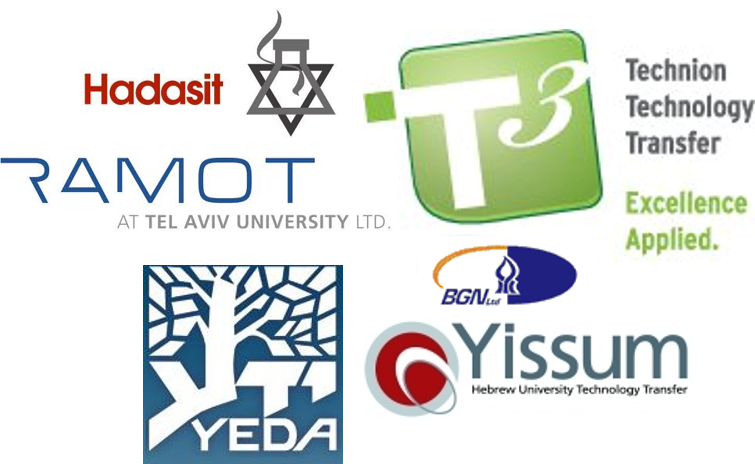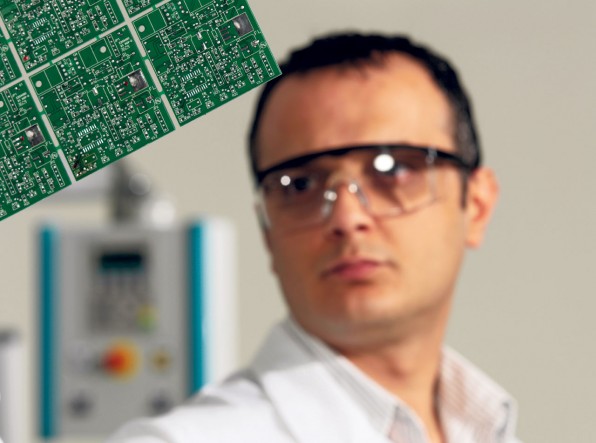Have you ever wondered how technologies that are developed on university campuses make it out of research labs and into the real world?
For the majority of researchers—and particularly for student researchers— the commercialization process can appear to be a slightly daunting task at best and a giant black hole at worst. To help students and faculty utilize their research for commercial purposes, many universities employ a “technology transfer office” (TTO) which acts as a liaison between an academic institution and industry. TTOs are generally experts on patents, research collaborations, licences, and other relevant legal and financial matters.
TTO’s and Israel: Together from the start

During this period, revolutionary agricultural engineering research that was being conducted at Israeli academic institutions was transferred to kibbutzim and private farmers, and was eventually shared with developing countries. Since then, several technology transfer companies have been established at leading universities all over the country. Yissum at the Hebrew University, Ramot at Tel Aviv University and T3 at the Technion are just a few examples.
Assessing commercial potential
In 2010 alone, Yeda, the TTO at the Weizmann Institute, oversaw more than 2,500 presentations of Weizmann Institute projects to private sector companies.
How was it able to select these research projects from among thousands and identify them as having commercial potential?
The most important factors in technology transfer

- existence and size of the potential market
- existence of intellectual property
- the probability that the proposed R&D project will succeed
- the degree of innovativeness of the project
- the maturity of the project.
The same survey found that the following factors were considered to be the least important: net present value of sales and profit; distribution system; production process complexity and need for subcontractors. Interestingly enough, there seemed to be a general consensus among the TTOs in regards to the criteria they used to assess a project’s commercial potential.
What makes for successful technology transfer

Several of the TTOs claimed that the project’s chances of succeeding rested primarily on the technology itself while others claimed that the more important factor was the team behind the project. Why the discrepancy? While some TTOs prefer to take a “pro-license” approach, meaning that the research is patented and licensed out to existing companies, others, most notably Dimotech at the Technion, are more interested in focusing on the startup approach for which Israel is so renowned.
Getting down to the numbers
Each year, Israeli technology transfer companies generate a total of over NIS 1 Billion in royalties. About 150 new technologies are licensed from Israeli universities and research institutions each year. An average of 15 new companies that are based on academic inventions are started every year. Furthermore, Yissum of Hebrew University and Yeda of the Weizmann Institute are ranked among the top 10 tech transfer companies worldwide in terms of revenues. [source]

Success stories in the Startup Nation
The results of this fruitful cooperation between the worlds of academia and business, facilitated by the TTOs, are evident in the innovative Israeli startup industry. Many of these businesses were founded on ideas that originated and were developed in Israeli universities, either by faculty or by students. Here are a few examples out of the many technology transfer success stories in Israel:
Mobileye Vision Technologies, for example, provides warnings for preventing collisions on the road. The company was founded in 1999 on a technology developed by Professor Amnon Shashua of the Hebrew University and was commercialized by Yissum, the university’s technology transfer company. Mobileye, which has existed as a subsidiary of the Hebrew University since its founding, later developed a number of proprietary algorithms on which the company’s driver assistant technology is now based. In July 2013, Mobileye raised $400 million in a deal that values the company at $1.5 billion and has attracted some large U.S. investors.

Brainstorm Cell Therapeutics Ltd., a subsidiary of Brainstorm Cell Therapeutics Inc., is another biotechnology company founded in Israel. Its focus is on developing stem cell therapies for neurodegenerative diseases such as Amyotrophic Lateral Sclerosis (ALS), Multiple Sclerosis and Parkinson’s Disease. The company’s core technology was developed in collaboration with Professor Eldad Melamed, former head of Neurology of the Rabin Medical Center, as well as Professor Daniel Offen of the Felsenstein Medical Research Center of Tel Aviv. Brainstorm holds rights to commercialize the technology, through a licensing agreement with Tel Aviv University’s TTO, Ramot. In September of this year, the company announced that it had completed a new phase of testing for ALS patients. The results of the trial are expected to be released around March 2014, after six months of follow up with the patients.
TTOs: Where science means business
At the end of the day, technology transfer companies may be overlooked but are often the driving force behind growth and innovation in the Israeli economy. The role they play is certainly crucial for motivating Israeli researchers who, without the requisite knowhow, would likely never have their work see the light of day. For the rest of us, the role of Israel’s TTOs is essential in making sure that we continue to benefit from the cutting-edge developments being made at Israel’s universities.
[xyz-ihs snippet=”MIchalLipsitz”]








